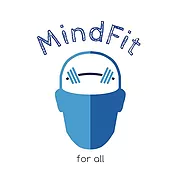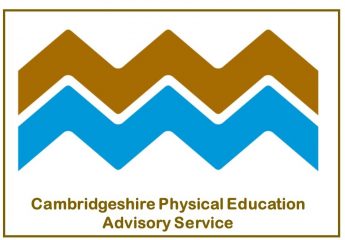To nurture the skills of resilience is key to providing young people with the ability to cope with stress, adversity, failure and challenges. Resilience is evident when young people have a greater ability to “bounce back” when faced with difficulties and achieve positive outcomes.
Resilience is required to pursue challenging and physical activities in favour of or an alternative to going on-line, engaging in social media or picking up the games console.
The issue locally and nationally
According to the latest Active Lives Survey of children and young people, nationally only 17.5% of children and young people (1.2m) are currently meeting the current Chief Medical Officers guidelines of taking part in sport and physical activity for at least 60 minutes every day. A further 25.7% (1.8m) sit just below this threshold taking part on average for 60+ minutes across the week, whilst 32.9% (2.3m) do less than an average of 30 minutes per day.
| Percentage of Children meeting the Physical Activity guidelines | Cambridgeshire and Peterborough | England average |
| Children and Young People currently meeting the current CMO guidelines for Sport and Physical Activity | 19.4% | 17.5% |
| Children and Young people currently active on average for 60+ minutes per week | 24.3% | 25.7% |
| Children and Young people ‘fairly active’ doing an average of 30-59 minutes per day of physical activity | 23.1% | 23.9% |
| Children and Young People currently inactive, doing less than an average of 30 minutes physical activity per day. | 33.2% | 32.9% |
Boys (20%) are more likely to be active than girls (14%) and this gap only gets wider from Years 5-6 (9-11yr olds) upwards.
Government guidelines set out that children and young people should get 30 minutes of their daily physical activity through the school day and 30 minutes outside of school. Data shows that 28% of children and young people do 30 minutes or more every day at school, while 22% do so outside school.
What is known to work
Interventions that are multi-component or adopt a whole school approach appear to be most effective. Teaching about the importance of physical activity, ensuring a supportive school culture and physical environment and engagement of the wider community and families.
Key actions for schools to take
Ensure staff are skilled
- Schools should be supported to ensure staff have the confidence and competence to offer high quality experiences of both physical education and physical activity.
Engage student voices
- Enhancing children and young peoples’ ownership of physical activity delivery to ensure that activities meet their needs.
- Create active environments
- Access to, and integration in the school day of, open forests, parks and playgrounds are positively associated with physical activity levels.
Offer choice and variety
- Offering a variety of physical activity opportunities including free play can increase participation in physical activity.
- Embed in curriculum, teaching and learning e.g. children standing up and moving around every 20 minutes. Using physical activity games in other subjects e.g. maths.
- Increasing the amount of time spent being physically active can improve both physical development, educational outcomes and emotional development. Active children have better attention, behaviour and academic performance.
Promote active travel
- Interventions to encourage active travel can play a key role in contributing to children and young people’s physical activity levels e.g. walking to school, using scooters or bikes.
Embed monitoring and self evaluation
- Self monitoring, for example through use of pedometers deployed with personal goal setting, has been found to support an increase in physical activity; particularly among children and young people who are likely to be the least active.
There is an association between being physically active and academic attainment and attention. Being physically active also helps to promote physical and emotional health and wellbeing. Children and young people who are physically active are more likely to continue the habit into adult life.
The Chief Medical Officer recommends that all children aged between 5 and 18 should be active for a minimum of 60 minutes per day.
By the end of primary school pupils should know
- The characteristics and mental and physical benefits of an active lifestyle.
- The importance of building regular exercise into daily and weekly routines and how to achieve this, for example a daily active mile or other forms of regular, vigorous exercise.
- The risks associated with an inactive lifestyle (including obesity).
By the end of secondary school pupils should know
- The positive associations between physical activity and promotion of mental wellbeing, including as an approach to combat stress.
- The characteristics and evidence of what constitutes a healthy lifestyle, maintaining a healthy weight, including the links between an inactive lifestyle and ill health, including cancer and cardio- vascular ill-health.
Source – Public Health Education

Mindfit For All
In partnership with Living Sport, Mindfit For All have produced a series of workout sessions for young people to access aiming to develop their resilience, with a theme each week. Initially put together over the summer of 2020 to support restarting school following COVID-19 lockdown, this video course is great way to support young people with their mental health through physical activity interventions at any time.
Visit: https://www.haypeterborough.co.uk/courses/taster-course-mindfit-for-all-with-living-sport/
Local Support

Ability PLUS Group
Intervention/ Programme name: Ability PLUS Group (County Disability Sports Forum) Target audience: Special Schools, Mainstream units, SENCO’s, PE Leads Summary of Intervention/Programme Ability PLUS Group; is the County Disability Sports Forum for Cambridgeshire and Peterborough. The Ability PLUS Group is a network that promotes sport and active recreation for people with disabilities or additional needs.
Read More About Ability PLUS Group
Cambridge United Foundation
The Mind your Head programme is a six-week mental health education programme designed for Year 8/9 students (aged 12-14). During the programme we deliver six classroom-based sessions each lasting 50 minutes, covering the topics of: We aim to increase mental health literacy within this age range, encourage positive conversations between young people to de-stigmatise mental health,
Read More About Cambridge United Foundation
Cambridgeshire PE Advisory Service
The Cambridgeshire PE Advisory service supports schools and settings to promote health, safety and resilience amongst young people Provide Reliable, professional and sustainable support services for all schools and settings Raise awareness of physical education’s contribution to public health and well-being Lead the development of a workforce to deliver high quality physical education and sport
Read More About Cambridgeshire PE Advisory Service
Healthy You
Healthy You has been commissioned and funded by Cambridgeshire County Council and Peterborough City Council to provide a range of health and active lifestyle services for people in Cambridgeshire and Peterborough. The FREE services for Cambridgeshire and Peterborough residents who are looking to make changes to their lifestyle, include:- Stop Smoking Falls Drink Less Weight
Read More About Healthy You
Healthy You For Schools
Cambridgeshire and Peterborough Healthy Lifestyle services provides free programme offers to support schools to embed physical activity and healthy eating into the daily lives of children and their families. There are four programmes available: Healthy You, Healthy Me – This is a classroom-based series of lessons focusing on healthy eating including physical activity games. This
Read More About Healthy You For Schools
Life Education Cambridgeshire & Peterborough
Life Education is a primary prevention programme focusing on drug and health education. We explore with young people how amazing their bodies are and how the human body can be affected by drugs. We develop understanding around physical and mental health. Through the ‘life skills’ approach, children are enabled to practise how to make healthy
Read More About Life Education Cambridgeshire & Peterborough
Living Sport
The Daily Mile™ Target Audience: Primary Schools, SLT, PE Coordinators Delivery Method: The Daily Mile is delivered through the class teacher during curriculum time, taking 15mins to jog or run outside. Register for free with www.thedailymile.co.uk Intended Outcomes: Increased level of physical activity undertaken by all children through The Daily Mile, leading to increased fitness levels
Read More About Living Sport
MittFit
Joe Mitton, owner and founder of MittFit, is a multi-award winning personal trainer who has worked directly with over 1,000 local Cambridge residents and does a lot for his community through work in schools, homeless shelters and other charities. MittFit takes a holistic approach to health and fitness working hard to personalise as much of
Read More About MittFit
School Games Organisers
The School Games Programme The School Games is a government led programme designed to keep competitive sport at the heart of schools and provide more young people with the opportunity to compete and achieve their personal best. It consists of different types of competition: The programme is funded by Sport England National Lottery funding and
Read More About School Games Organisers
South Cambs School Sports Partnership
South Cambs School Sports Partnership The South Cambs School Sports Partnership (SCSSP) works with 51 primary schools, 9 secondary schools and 1 special school across the district of South Cambridgeshire in order to maximise the positive impact that high quality Physical Education, school sport and physical activity can have on young people. The School Sport
Read More About South Cambs School Sports PartnershipResources
Documents
Teacher Guidance
- *CCC Physical Education, School Sport and Physical Activity and the wider re-opening of schools
- A Simple Guide to National Curriculum Progression in Physical Education
- ASA and British Swimming KS1 and KS2 Offer
- ASA funding fact sheet
- ASA school swimming guide
- Association for PE Head Hands Heart KS1 KS2
- Association for Physical Education Evidencing the Impact of the Primary PE and Sport Premium
- Association for Physical Education Health Position Paper Association for PE
- Association for Physical Education Primary PE and Sport Premium – Key Indicators
- Cambridgeshire County Council – DrEAM (Drop everything and move)
- DfE Physical education programmes of study: key stages 1 and 2
- DfE Physical health and fitness training (primary)
- DfE Physical health and fitness training (secondary)
- DfE Primary Sport Report
- DfE School Sport Activity Plan
- DfE school sport and activity plan July 2019
- Learn To Swim – Good practice case studies
- NICE Guidance Physical activity for children and young people
- Ofsted Obesity Healthy Eating and Physical Activity in Primary Schools
- PHE What works in schools and colleges to increase physical activity
- Practice matters Physical Education and Physical Literacy
- Primary School Physical Literacy Framework
- Primary school swimming: good practice case studies EDS & Durham CC
- Promoting Physical Activity Through Schools
- Sport England 2018/19 Active Lives Survey
- Sports Coach UK Coaching FUNdamentals
- Time to move Primary school audit
- Time to move Secondary school audit
- Youth Sports Trust Self review tool
External Links
- Active School Planner
- Association for Physical Education
- Cambridgeshire Learn Together PE Services
- Cosmic Kids Yogo
- Go Noodle
- Improveit
- Just Dance
- Learning Through Landscapes
- Living Sport; sport education, training, events and awards for Cambridgeshire and Peterborough schools
- Movement breaks for the classroom
- NICE Guidance: Physical Activity for Children and Young People
- PE at home online links and resources
- Premier League Primary Stars
- Public Health England: Being Active
- School Games; encouraging competitive sport in schools
- Sport England; primary school sport
- Sports Leaders; activity leadership, qualifications and awards
- Super Movers
- Sustrans; walking and cycling initiatives
- Teach Active
- The Daily Mile; health and well-being through physical activity
- The PE Shed
- Walk to School – Living Streets
- What works in schools and colleges to increase physical activity
- Yoga and mindfulness for early years and primary level
- Youth Sport Trust



